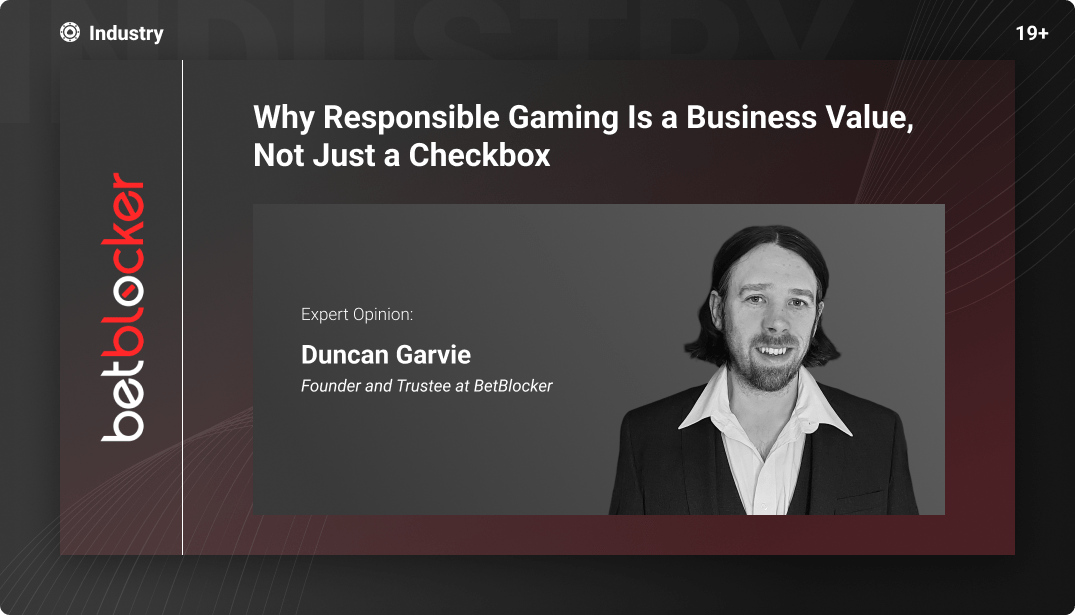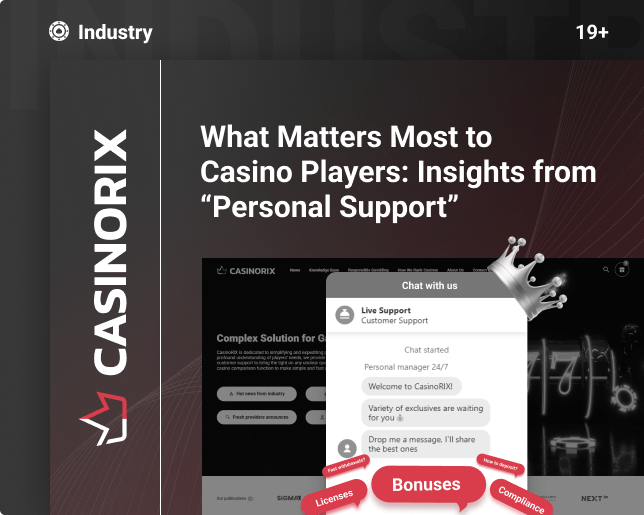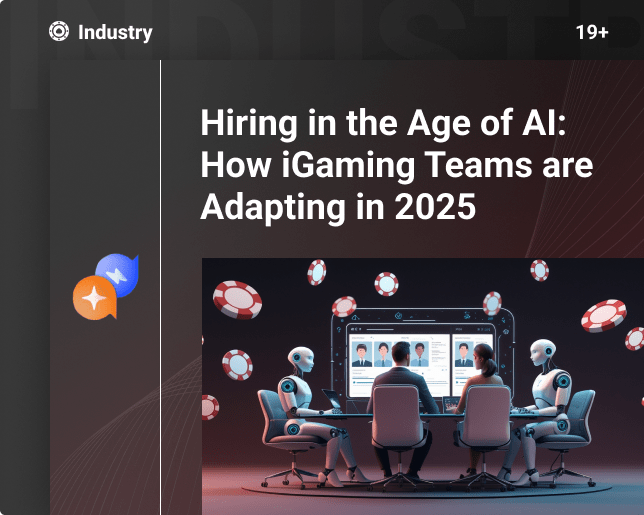
Expert Opinion: Why Responsible Gaming Is a Business Value, Not Just a Checkbox
Over the past decade, the rise of online gambling has dramatically shifted industry expectations. Initially viewed merely as a compliance requirement, responsible gaming now stands at the forefront of public, regulatory, and business consciousness. High-profile cases of neglect and increasing public scrutiny have forced operators to rethink their approaches, transforming responsible gaming from a simple checkbox into an essential business value.
To explore this transformation, CasinoRIX sought expert insights from Duncan Garvie, Founder and Trustee at BetBlocker. With extensive experience advocating for safer gambling practices, Garvie’s perspective offers a grounded look into how the industry has evolved and why responsible gaming plays a vital role in long-term business success, not just regulatory compliance.
Q: When did you notice that responsible gaming was becoming a serious topic in the industry and why do you think that shift happened?
A: I’m not sure there’s been a specific “when” in terms of change of attitude. As is common with social attitudes, they change slowly over time. It’s rare for us to culturally jump forwards. And RG is no different.
As to “why”: regulation. As much as I wish it wasn’t the case, the industry did not make these changes voluntarily. When I think back, I can remember dealing with a complaint where one of the biggest names in the sector, and a brand that was at the time promoting itself as THE most player friendly brand, was still requiring players to print out, fill out, sign and return a form to be self-excluded. Artificially creating that level of friction between players and any support was viewed as acceptable pre-substantive regulation.
Over the years since the national regulatory systems started to appear we’ve seen a steady change in attitudes. But it hasn’t been painless, and there are voices on both sides, calling for more regulation and decrying the impacts of regulation, that are pushing for unworkable extremes. As with most things in life, the middle ground is usually where we’ll find the most effective solution.
Why Responsible Gambling Practises Impact Business Not Just Players
Responsible gaming shapes how gambling companies operate, earn trust, and manage risk. It directly influences revenue by impacting player satisfaction, retention, and platform credibility. When players feel protected and respected, they are more likely to stay loyal to a brand. On the other hand, regulatory fines, public scandals, or even license suspensions have proven how costly neglecting player protection can be.
Focusing on responsible gaming also future-proofs the business. Transparent policies, clear communication, and support tools signal a long-term commitment to ethical operations. In a market where informed players have many options, companies that build meaningful safeguards into the user journey stand out — for the right reasons.
Q: What are the risks for companies that don’t take responsible gaming seriously? Have you seen examples where it backfired?
A: Are there risks? I know that sounds like a strange question. And certainly for licensed brands the risks are clear: negative media, brand damage, sanctions, loss of license and even lawsuits.
But there are a host of black market operators who are thriving now, none of which I would currently view to “take responsible gaming seriously”. So whether there are risks or not really depends on the type of business that we’re discussing. At the current level of communications technology, there are approaches that will allow gambling businesses to thrive purely via the exploitation of vulnerability.
Until we find a strategy that can effectively create friction between players and the black market, the harder we press for the licensed market to protect players, as opposed to providing players the tools to protect themselves, the more we’re going to see the black market thrive.
Real Mistakes Companies Still Make
Some brands treat responsible gaming like a checklist. Tools are added, but not explained. Policies exist, but they’re not used. That creates gaps and those gaps are where problems grow.
Q: Where do you think most companies go wrong? What are some “checkbox” behaviors you’ve seen that don’t really help players?
A: Right now, I’m not so sure that it’s companies that are going wrong. It’s the regulators.
Arbitrary requirements to conduct specific checks, like source of wealth checks, or limit specific activities, like bonus buys on games or wager caps, are creating a situation we’re subjecting the 99% of players who aren’t seriously impacted by gambling harm to high levels of frustration, or poorer quality products, that make black market gambling operators more appealing because they don’t have these impediments.
Whether these checkbox type approaches actually benefit vulnerable players, or simply encourage them to move out of sight into the black market is a subject that needs far more robust exploration. But they certainly create high levels of frustration for ordinary players, which isn’t a good thing.
I discussed in a previous response that the industry has shown it won’t take a serious approach to safer gambling by itself. But regulation that requires blanket approaches to all players isn’t working either. It’s far harder to do, but if we want to effectively address this issue we need to start listening to all consumers, and tailoring the ways that we approach safer gambling to what they actually want.
We also need to improve our data significantly. There will always be cases where the operator can and should intervene. But where regulators push for widespread Source of Wealth checks, something that players absolutely hate, as a harm prevention strategy, we’re getting our approach all wrong. These checks need to be respected for what they are: sometimes necessary but highly invasive. So they need to be targeted only at the people most likely to need intervention.
What Actually Helps – and How to Do It Right
Responsible gaming tools only work when they’re easy to use, easy to find, and backed by real intention. Companies that build these tools into the player journey and treat them seriously stand out.
Q: What does a good responsible gaming approach look like in practice? What role can BetBlocker play?
A: We’re going to have to start actually listening to what players want. What forms of protection will they engage with positively? What do they feel is overstepping the mark? We need to find a way to make playing safely something that people want to engage with and feel supports them, rather than pursuing approaches that impose what we feel is safe on them.
Up till now, we’ve focused almost exclusively on what operators should do to prevent gambling harm. Whilst that has to make up part of the solution, for regulators it’s the easy part and as such can be lent on too heavily. Regulators oversee the industry. Pointing the finger at licensees and saying ‘you’re not doing enough’ is tangible action for a regulator and all too often it’s what they focus on.
The far harder part of the solution is going to involve a lot of research and learning. It involves working with players, and not simply players who have had the most negative experiences, to determine how players view our efforts to protect them. To establish what it is that players would find useful to keep them playing safely, without making the black market product seem better than the licensed model.
I don’t have the answers to this problem right. Far smarter people than me will be needed to work them out. But if we don’t start doing the hard work to find them we’re going to bleed the most vulnerable players to the black market for years to come.
As a project BetBlocker is positioned to empower players rather than impose protections. Unlike other strategies, our protections are something that only the player can choose to activate. And our Scheduling tool supports players to identify the times that they are at risk and take steps to mitigate that risk. We’re part of that hard work that needs to be done. The work that supports players to protect themselves.
What’s Next and Why It Matters Long-Term
Looking ahead, responsible gaming will increasingly define brand identities, becoming integral to customer trust and retention. Operators investing today in effective, data-driven responsible gaming practices will not only navigate regulatory challenges more effectively but will also position themselves as preferred choices for discerning players. In the coming years, successful businesses will be those that integrate player protection seamlessly into their customer experience. Ultimately, responsible gaming will evolve into a core competitive advantage, fundamentally shaping industry standards and player expectations.
Q: How do you think responsible gaming will evolve in the next 3 – 5 years? What advice would you give operators now?
A: The future HAS to be data. If businesses want to discourage regulators from using the stick, forcing harm reduction via imposing limitations (i.e. restricting or removing features, invasive checks, forced exclusions etc etc), businesses need to invest in finding ways to support players to protect themselves. This means identifying tools and strategies that players want to engage with. It means using data to more accurately identify players who are at high risk of serious harm. It means improving our interactions with players.
Invest in learning and share best practices. Find other strategies, beyond imposition of restrictions, that will help reduce harm. Otherwise the regulators are going to keep painting with a broad brush, with the result that players that need support and those that don’t will be swept into the same restrictions.
Conclusion
Responsible gaming now plays a central role in shaping the direction of the gambling industry. Meeting regulatory requirements is only one part of the picture. Operators are expected to show a real commitment to player wellbeing, transparent practices, and sustainable business models. As Duncan Garvie’s insights highlight, progress depends on collaboration among regulators, operators, and players – each playing a distinct role in creating a safer environment.
The next phase of responsible gaming will rely on data-driven decisions, stronger player engagement, and support tools that are easy to access and genuinely helpful. By focusing on trust, transparency, and long-term value, forward-thinking operators can help redefine industry standards while strengthening their position in a competitive market.
Other news:
What Matters Most to Online Casino Players: Insights from “Personal Support”
Understanding the priorities of casino players is key to improving their experience. At CasinoRIX, our “Personal Support” team analyzed thousands of player inquiries during the last quarter. This report highlights...
iGaming by Numbers: 5 Stats You Need to Know for this Summer
Summer changes how players engage with iGaming. Stars Partners reveals 5 key stats, from a 42% spike in mobile use to shorter sessions and shifting GEOs, that every affiliate should know. Adapt your strategy for highe...
Navigating the iGaming Galaxy: Insights from Halyna Nikitina, Affiliate Manager at 7StarsPartners
Halyna Nikitina, the Affiliate Manager of the 7StarsPartners team, recently shared insights into her role with the CasinoRIX team.
Hiring in the Age of AI: How iGaming Teams Are Adapting in 2025
iGaming moves fast: new games, payments, and markets. AI is now a partner, not a threat. CasinoRIX asked Talentgrator to share how hiring adapts in 2025: AI skills as a must-have, practical recruitment use cases, and ...




